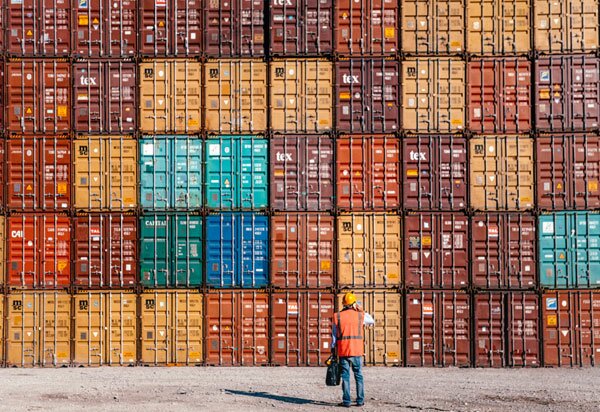Our new NorthStandard site is now live. There will be no new content or updates added to this site. For the latest information, please visit our new site north-standard.com.
Article: MV EVER GIVEN - Suez Canal Grounding - Member Alert
News & Insights 30 March 2021
This Standard Club member alert is intended to give members some topical guidance on some of the many issues that the shipping world faces as a result of the grounding of the MV Ever Given in the Suez Canal on 23 March 2021.

This Standard Club member alert is intended to give members some topical guidance on some of the many issues that the shipping world faces as a result of the grounding of the MV Ever Given in the Suez Canal on 23 March 2021. However, whilst the ship was fortunately refloated on 29 March 2021, the situation in terms of liabilities remains fluid and complex. Members should therefore treat this alert as offering general guidance only, and are encouraged to contact the club for assistance with particular issues or questions. This alert reflects the position as of 31 March 2021.
Introduction
The MV Ever Given (the 'Vessel') grounded in the Suez Canal on 23 March 2021, blocking passage and leading to a rapid build-up of vessels waiting to transit the Canal (the 'Incident').
As of the date of this alert, the Vessel has been refloated (on 29 March 2021) and the Canal has reopened. However, it remains unclear exactly how long it will take for the backlog of hundreds of vessels waiting to transit the Canal to clear.
The practical and legal consequences of the recent disruption to one of the world’s main maritime arteries should not be underestimated. Worldwide losses are already likely to be significant, although it is of course very good news that the Canal has now been reopened.
The intention of this alert is to assist the club’s members by identifying some common concerns arising out of this Incident and its aftermath, and offering some practical guidance where possible. It may also serve as a useful reference point for such concerns if a similar event should unfortunately happen in the future, whether in the Canal or elsewhere.
The structure of the alert is to look at specific individual issues under separate headings, for clarity. However, the club entirely recognises that some members will be facing multiple issues at the same time, and is here to assist as required.
(A) When will the situation be back to normal?
The honest answer? No one knows exactly. The key question is now how long it will take to clear the backlog of vessels waiting at both ends of the Canal. However, now that the Canal is open again, congestion is already reported to be easing.
(B) What is the position of EVER GIVEN cargo interests?
Those parties with any interest in the cargo or boxes onboard the Vessel find themselves in a particularly complex situation, with issues of potential cargo loss/delay, salvage, and general average to consider. It would not be sensible to try to deal with the position of any such members in this alert. Rather, quite simply, if members are involved in any manner whatsoever with cargo onboard the Vessel, please contact your usual claims handler at the club as a priority.
(C) What is the position of third party vessels transiting the Canal?
For those vessels that were transiting the Canal at the time of the Incident, the possibility of simply 'turning around' did not exist.
Any owner or charterer that found themselves in this position should be at least considering potential claims in tort against (a) the owners/operators of the Vessel, and (b) the Suez Canal Authority (the 'SCA'). The club can assist in advising on such claims. However, any such claims will be subject to local law. They are unlikely to be straightforward in the circumstances.
Owners with loss of hire insurance should notify their underwriters.
Time charterers
Assuming that a third party vessel was 'stuck' waiting for the Incident to be resolved, under most time charters the vessel will have remained on hire, and bunkers used during the waiting period will have been for charterers’ account. This is because congestion is usually a risk borne by charterers, although it is of course always necessary to check your contract.
Time charterers with loss of hire insurance should notify their insurers forthwith.
Voyage charterers
Conversely, the situation is likely to be different for most voyage charterers in the same position, subject to what has been agreed in the charter. This is simply because freight is usually calculated on a lumpsum voyage basis, and laytime and demurrage regimes only apply during loading and discharging. Equally, the cost of bunkers is included in most voyage charters as part of the freight.
In other words, affected voyage charterers are unlikely to find themselves paying extra for the extended duration of the voyage, subject to what their contracts say. That said, of course, they may face other issues, especially with regards to sale contract arrangements and cargo claims if there are consequential financial losses for delay or a cargo is perishable. These are explored below.
(D) What is the position of queuing third party vessels?
The number of vessels actually 'trapped' in the Canal was dwarfed by the number (a) queuing at either end of the Canal; or (b) heading for the Canal but facing a decision on whether to wait off the Canal or reroute via the Cape of Good Hope.
In most cases it is expected that queuing vessels will now simply wait their turn to transit the Canal, given the lengthy detour involved in taking the Cape of Good Hope route. However, any members still considering rerouting vessels for any reason should carefully consider whether this is contractually permissible and not, for instance, an unlawful deviation. Ideally, any decision to reroute should be agreed by all interested parties, including owners, charterers, and cargo interests, although this may not always be realistic. Members should also be aware of the club’s P&I rules in relation to the potential impact of any deviation on cover for cargo claims, and speak to the club if in doubt, ideally before any decision to reroute is made – further detail is provided below under the 'Insurances – general' heading.
Decisions on whether or not to reroute particular vessels are unlikely to be simple, even though the Canal is now open again. What is particularly unclear is how many vessels will now 'rush' for the Canal and add to congestion there. However, the club is able to provide guidance based on reviewing members’ contracts alongside available information on questions such as how long the vessel backlog is likely to take to clear, and members are encouraged to get in touch.
(E) Charterparty laycans
Many charter fixtures with fast-approaching laycans will have been thrown into disarray by the unexpectedly lengthy ballast/approach voyages some vessels now face.
Affected owners and charterers should review their contractual rights and obligations in the event that it seems likely that their vessel will miss the laycan. To give an example, a number of standard form charterparties deal with just this situation, allowing owners to serve notice that their vessel is likely to be late, and requiring charterers to decide whether or not to accept the new laycan or cancel the fixture.
Matters are complicated by the reported significant increase in freight rates being experienced in, for instance, the oil and gas tanker sector. In other words, even if a charterer may be entitled to cancel an upcoming fixture for delay, this may not be in its commercial interest.
(F) Sale contracts
Many sale contracts impose strict requirements as to cargo loading and/or discharge dates, and often seek to allocate liability for delay as between sellers and buyers.
In some cases, members may need to give careful thought as to whether the unexpected delays that many vessels are now facing as a result of the Incident and its aftermath mean that sale contract deadlines are likely to be missed, and what if anything can or should be done as a result.
(G) Force majeure
Force majeure clauses may have been triggered by the Incident, which is arguably a classic example of an event beyond the control of either of either party.
Traditionally, force majeure clauses are often considered to be of more relevance to sale contracts than charterparties. However, increasing numbers of charterparties now contain force majeure clauses of one kind or another, to the extent that BIMCO is currently working on a new force majeure clause of its own.
Members should therefore carefully consider whether their contractual rights may be impacted by force majeure provisions. It is important to consider the impact of the fact that the Canal has now reopened on any rights under force majeure clauses.
(H) Frustration
At least as a matter of English law, a contract is 'frustrated' if an unforeseen event occurs which is outside the parties’ control and makes the contract impossible or illegal to perform, or radically transforms the nature of the contractual obligation.
However, frustration is very rarely successfully argued and, at least from an English law perspective, mere delay or additional expense is almost always insufficient. Frustration is therefore unlikely to be relevant to most contracts in circumstances where the Canal is now open.
(I) Cargo claims
It is highly likely that the Incident and its aftermath will result in an upsurge in cargo claims. It is difficult to generalise about how these should be handled, and potentially affected members are asked to contact the club.
In the broadest possible terms, it is usually true to say that most container lines and other carriers may have less to worry about in terms of the potential for delay claims concerning cargoes that are not perishable. Generally speaking, it would be unusual for a carrier of such goods to be held liable for delays of the kind currently being experienced.
On the other hand, the situation in relation to perishable and/or otherwise sensitive cargoes may be different. Examples include refrigerated container cargoes and bulk foodstuffs. It is possible that those carriers who chose not to reroute will end up facing claims that they should have in order to properly care for perishable goods. (Ignoring for now the question of whether such claims would likely succeed.) However, the live question is now whether those parties who took the calculated gamble to stay in the queue, rather than reroute, may end up being able to demonstrate that this was the right choice. Ultimately, it will be a question of fact in each case.
Some of the major container lines, whose vessels generally carry a mixture of dry and reefer containers made early decisions to start rerouting via South Africa, and there may now be a further period of disruption as vessels are repositioned and the effects of the Canal reopening work themselves out.
Other owners and charterers have been considering whether this is an approach that they should also be adopting (if their contract permits, and subject to insurance considerations; see below). However, it was never an easy decision in circumstances where the Cape of Good Hope route may add 10-14 days or more to journeys and results in significantly increased usage of bunkers, and the analysis of pros and cons may look very different now that the Canal is open once more.
(J) Insurances – general
In all instances, members are encouraged to carefully consider the scope and requirements of any relevant insurances that they may have, not only with the club but elsewhere also.
Of particular importance is the fact that the club’s P&I cover does not usually cover liabilities arising out of deviations from the agreed voyage, to the extent that this may deprive the member of the right to rely on defences or rights of limitation which would otherwise have been available to him, unless the managers have agreed that cover may continue unprejudiced. This needs to be borne in mind when considering potentially rerouting vessels.
Members are asked to contact the club in the event of any queries on cover.
(K) Strike & Delay cover
Members who have taken out Strike & Delay cover with the club and have a vessel currently waiting to go through the Canal, or are likely to be delayed by the resulting congestion, should notify the club as soon as possible to advise on members’ rights of recovery.
More widely, the grounding of the Vessel and subsequent delays are exactly the type of risks which Strike and Delay cover is tailored to meet. Strike & Delay rule 3.9 explicitly provides protection against losses in respect of delay to a ship caused by 'physical obstruction … in any port, berth, sea-lane or navigable waterway for any abnormal reason, unforeseeable at the time of the order to proceed.'
Subject to the terms of entry, including the applicable deductible of, say, 1 or 2 days, and subject to checking the facts of each case, a member may make a full recovery for the cost of delays arising out of the blocked Canal, helping vessel operators to protect revenue.
Cover may also respond to protect members who have sought to avoid or minimise delays by re-routing their vessel(s) via the Cape of Good Hope.
Members are asked to contact the club in the event of any queries regarding cover.
Conclusion
Inevitably, this alert only offers a small window on a few of the many different issues members will be facing as a result of the Incident and its aftermath. Whilst it hopefully offers some useful guidance, every case turns on its own facts and every contract on its own terms. As such, especially in the face of an ever-changing factual situation, members are encouraged to contact the club for assistance with any issues or concerns whatsoever.
This Alert was prepared with the assistance of Richard Hickey, Alistair Johnston and Maria Borg Barthet at Campbell Johnston Clark.


